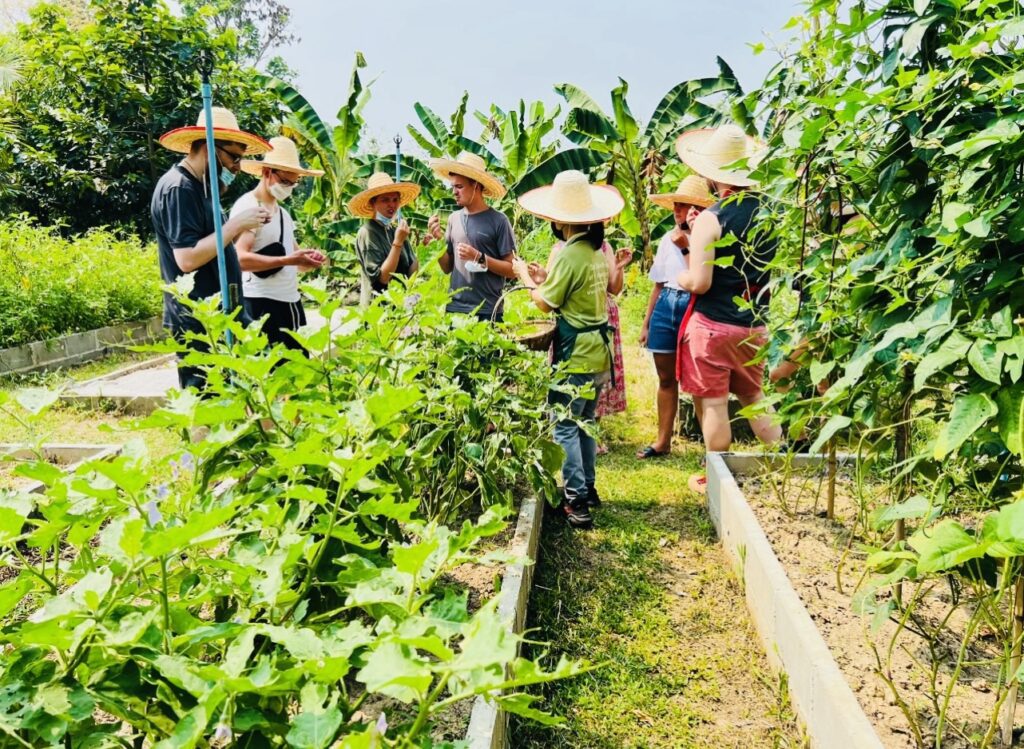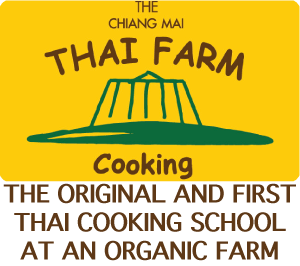
Exploring an organic farm is not just a pleasant rural escape—it’s an education in where food truly comes from. These farms provide insight into sustainable agriculture, natural ingredients, and the benefits of eating in harmony with the earth. Whether you’re a chef, a health-conscious eater, or a curious visitor, learning about ingredients at an organic farm is an enriching experience that bridges the gap between farm and table.
Understanding What Makes a Farm Organic
Organic farms operate under strict guidelines that exclude synthetic pesticides, herbicides, and genetically modified organisms (GMOs). Instead, they rely on natural methods like crop rotation, composting, and biological pest control. This means the soil is alive with beneficial microbes and nutrients, and the ingredients grown here often have a richer taste and better nutritional profiles.
Organic certification ensures that every ingredient, whether it’s a crisp apple or a fresh basil leaf, has been nurtured with care and environmental responsibility. As you walk through the fields, you’ll notice not only the absence of chemical smells, but also the presence of pollinators and biodiversity, which are hallmarks of a thriving, healthy farm.
Common Organic Ingredients You’ll Encounter
One of the joys of visiting an organic farm is discovering the wide variety of ingredients cultivated there. Depending on the season and climate, you may find:
Fresh Produce
- Leafy Greens: Such as kale, spinach, arugula, and lettuce—rich in vitamins A and K.
- Root Vegetables: Carrots, beets, and radishes that are often sweeter due to the rich soil.
- Tomatoes and Peppers: Often heirloom varieties, bursting with flavor.
- Squashes and Pumpkins: Nutrient-dense and perfect for hearty dishes.
Herbs and Spices
- Basil, Thyme, Mint, Oregano: Grown without chemicals, these herbs are intensely fragrant and flavorful.
These ingredients not only taste better, but they also support a lifestyle that respects the planet.
How Organic Practices Affect Ingredient Quality
The way ingredients are grown has a major impact on their taste, texture, and nutritional value. Organic farming emphasizes soil health, which translates directly into more robust plants. Healthy soil teeming with organic matter and microbes helps crops absorb minerals like calcium, magnesium, and potassium—resulting in produce that is often more flavorful and colorful.
Because organic farms avoid synthetic preservatives, the ingredients must be harvested at peak ripeness. This ensures optimal flavor but also teaches the importance of seasonality and freshness. Eating an apple in autumn or tomatoes in summer connects you to the natural cycles of the earth.
Learning Through Experience: Farm Tours and Workshops
Many organic farms offer guided tours or educational workshops. These are golden opportunities to learn hands-on about farming methods and ingredient care. Some activities you may encounter include:
- Harvesting Your Own Vegetables: Learn how to select ripe produce.
- Composting Demonstrations: Discover how food waste is transformed into fertile soil.
- Seed Saving: Understand how heirloom varieties are preserved naturally.
- Cooking Classes: Turn freshly harvested ingredients into simple, wholesome meals.
By participating, you gain appreciation not only for the food itself but for the labor, patience, and skill that go into its production.
The Role of Animals on Organic Farms
If the organic farm raises animals, these too are treated with respect and raised under ethical conditions. Chickens might roam freely and contribute eggs with rich, orange yolks due to their varied diet. Cows and goats may graze on untreated pasture, producing milk that becomes creamy cheese or yogurt.
Animal waste is also composted and returned to the soil, contributing to a closed-loop system that mimics natural ecosystems. Learning about these animals and their role in ingredient production helps develop a holistic view of organic farming.
Why Ingredient Knowledge Matters
Knowing where your food comes from encourages more mindful eating. When you understand how a tomato is grown, you’re less likely to waste it. When you know the effort it takes to raise an organic chicken, you treat it with more respect in the kitchen. Ingredient knowledge also empowers you to make healthier choices, avoid ultra-processed foods, and appreciate the subtle differences in texture, aroma, and taste.
This is especially valuable for people with dietary restrictions, allergies, or those pursuing wellness-focused diets. On an organic farm, ingredients are labeled clearly, and you can ask direct questions to the farmers about how something was grown or handled.
Supporting Local Economies and Sustainability
Learning about ingredients at an organic farm also means supporting small-scale agriculture. Buying directly from these farmers reduces carbon footprints, supports local economies, and fosters a stronger connection between communities and their food sources.
Sustainable agriculture ensures the land remains fertile and usable for future generations. Organic farms often use renewable energy, conserve water, and avoid polluting chemicals—all of which are practices worth supporting and learning from.
Bringing the Farm Home
After your visit, consider bringing back some of the farm’s produce or signing up for a CSA (Community Supported Agriculture) box. This regular delivery of seasonal ingredients from a nearby organic farm is a fantastic way to incorporate farm-fresh items into your daily meals.
Try planting a few herbs or vegetables in your garden or on your windowsill using techniques you learned during your visit. Even in small spaces, growing your own food—however limited—can be rewarding and educational.
Learning about ingredients at an organic farm is a journey that blends nature, science, health, and culinary joy. It deepens your relationship with what you eat and with the world that produces it. By seeing ingredients in their natural environment, handled with care and grown responsibly, you begin to appreciate the value of simple, wholesome food.
Whether you’re there for a day or for a full season, an organic farm offers lessons that stay with you long after the visit—lessons in sustainability, flavor, nutrition, and gratitude.

Just brilliant, honestly.
Deadset amazing content! You’re a true blue legend.
Spot on the money! Thanks for the awesome content.
Mint content! Really appreciate you putting this out there.
Pingback: buy androxal purchase tablets
Pingback: get enclomiphene new zealand buy online
Pingback: how to buy rifaximin low price
Pingback: discount xifaxan usa buy online
Pingback: staxyn canada pharmacy
Pingback: purchase avodart cheap online no prescription
Pingback: how to order dutasteride cheap from india
Pingback: how to buy flexeril cyclobenzaprine generic free shipping
Pingback: buy gabapentin generic from the uk
Pingback: online order fildena without a script
Pingback: cheapest buy itraconazole generic south africa
Pingback: nejlevnější cena kamagra
Pingback: sans ordonnance kamagra medicament nist prescrire
Nếu bạn đang tìm kiếm một sân chơi giải trí trực tuyến ổn định, hiện đại và đa dạng trò chơi, xn88 bshrf chính là lựa chọn đáng để trải nghiệm. Với hệ thống trò chơi phong phú như: Bắn Cá Đổi Thưởng, Mini Game Đá Gà, Xổ Số Ba Miền, Thể Thao Điện Tử,… Tại đây mang đến không gian giải trí sống động, phù hợp với nhiều đối tượng người dùng. TONY12-30
Dịch vụ chăm sóc khách hàng của rtp slot365 hoạt động 24/7 qua nhiều kênh: live chat, Zalo, Telegram và hotline tiếng Việt. Đội ngũ CSKH được đào tạo bài bản, phản hồi nhanh và giải quyết tận gốc vấn đề. TONY01-06S
**mitolyn reviews**
Mitolyn is a carefully developed, plant-based formula created to help support metabolic efficiency and encourage healthy, lasting weight management.
**aquasculpt**
aquasculpt is a premium metabolism-support supplement thoughtfully developed to help promote efficient fat utilization and steadier daily energy.
**herpafend reviews**
Herpafend is a natural wellness formula developed for individuals experiencing symptoms related to the herpes simplex virus. It is designed to help reduce the intensity and frequency of flare-ups while supporting the bodys immune defenses.
**prodentim**
ProDentim is a distinctive oral-care formula that pairs targeted probiotics with plant-based ingredients to encourage strong teeth, comfortable gums, and reliably fresh breath
**men balance pro**
MEN Balance Pro is a high-quality dietary supplement developed with research-informed support to help men maintain healthy prostate function.
**prostafense official**
ProstAfense is a premium, doctor-crafted supplement formulated to maintain optimal prostate function, enhance urinary performance, and support overall male wellness.
**neurosharp**
Neuro Sharp is an advanced cognitive support formula designed to help you stay mentally sharp, focused, and confident throughout your day.
**backbiome**
Mitolyn is a carefully developed, plant-based formula created to help support metabolic efficiency and encourage healthy, lasting weight management.